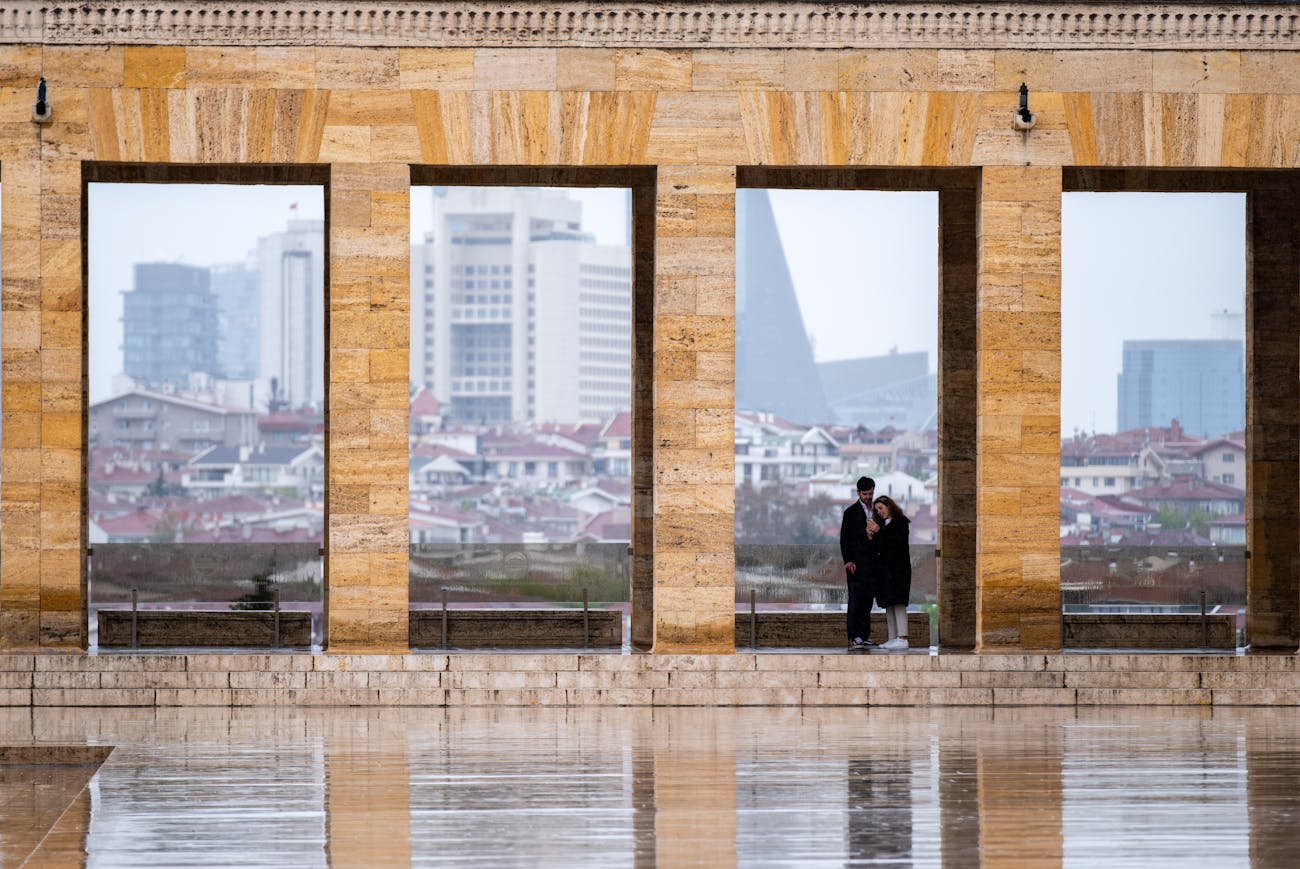Have you ever wondered about the individuals who truly shape the commercial landscape of a nation, perhaps even influencing how many people shop for everyday items? Well, it's quite something to consider, is that not so? We are going to explore the life and significant contributions of Mustafa Latif Topbaş, a name that resonates deeply within Turkey's business circles. His story, you know, really offers some fascinating insights into vision and perseverance, showing how one person's drive can impact so many others.
He's a figure who, in a way, has helped redefine consumer habits for millions, building something truly remarkable from the ground up. His work, especially with a particular retail chain, has left an undeniable mark on the economy and daily routines for countless households. It's a bit like seeing a grand plan come to life, isn't it?
This article will take a closer look at Mustafa Latif Topbaş, delving into his background, the meaning behind his distinguished name, and the significant business ventures he's steered. We'll also touch upon his broader impact, so you can get a fuller picture of this influential personality. It's actually a pretty interesting story, to be honest.
- Percival Seven Deadly Sins
- Gawain Seven Deadly Sins
- Beyonce Memes
- Kakashi Wallpaper
- What Exercise Can Make Breasts Smaller Transmasc
Table of Contents
- Who is Mustafa Latif Topbaş?
- The Name Mustafa: A Rich Heritage
- Leadership and Vision: Shaping a Retail Giant
- Mustafa Latif Topbaş's Impact on the Economy
- Beyond Business: Philanthropy and Community Engagement
- Frequently Asked Questions About Mustafa Latif Topbaş
Who is Mustafa Latif Topbaş?
Mustafa Latif Topbaş, quite simply, is a very prominent Turkish businessman, known widely for his pivotal role in establishing and growing BİM Birleşik Mağazalar A.Ş., which is a major discount supermarket chain in Turkey. His journey, you know, pretty much embodies a spirit of entrepreneurial drive and a keen understanding of market needs. He's often seen as a visionary, someone who spotted an opportunity and really went for it, creating a retail model that resonated with a large part of the population. It's truly impressive, in a way, what he's accomplished.
Born into a family with a strong background in business and religious scholarship, Mustafa Latif Topbaş inherited, you could say, a blend of commercial acumen and a deep sense of social responsibility. This heritage, you know, has arguably shaped his approach to business, guiding his decisions and his interactions. He's not just about profits, it seems, but also about creating value for customers and the broader community. That's a pretty big deal, if you ask me.
His early experiences, before the big success of BİM, probably laid the groundwork for his later achievements. Like, he would have learned a lot about what works and what doesn't, picking up practical skills that became incredibly valuable. It's almost as if every step was preparing him for the massive undertaking that BİM became, which is rather interesting to think about.
- Black And White Horse
- Yeraldin Model Sets
- Woman Wearing Gym Shorts
- Brown Hair Color With Highlights
- Hello Kitty Pajamas Pants
Many people see him as a figure who represents a particular kind of business success in modern Turkey, one that combines traditional values with very modern commercial strategies. He's certainly someone who has left a significant mark, and you can see his influence in many aspects of daily life for Turkish consumers. It's quite something, really.
Personal Details & Biography
| Detail | Information |
|---|---|
| Full Name | Mustafa Latif Topbaş |
| Nationality | Turkish |
| Known For | Co-founder and Chairman of BİM Birleşik Mağazalar A.Ş. |
| Field | Retail, Business |
| Influence | Significant figure in Turkish retail and economy |
The Name Mustafa: A Rich Heritage
It's fascinating, isn't it, how a name can carry so much history and meaning? The first part of his name, Mustafa, actually has a very deep and respected background, particularly in Arabic language and culture. So, you know, it's not just a random choice. The name Muṣṭafā, as a matter of fact, is one of the names of the Prophet Muhammad, and it quite literally means "chosen," "selected," "appointed," or "preferred." This meaning, you see, comes from the Arabic root اصطفا (iṣṭafā), which means "to choose."
Given these strong associations, the name Mustafa is often linked with qualities or traits such as leadership and kindness. It's a name that has been borne by incredibly influential figures throughout history, including, very notably, four Ottoman sultans. This historical weight, you know, adds a certain gravitas to anyone bearing the name. It suggests a connection to a legacy of significant individuals who have, arguably, shaped the course of events.
For someone like Mustafa Latif Topbaş, bearing a name with such profound meaning and historical resonance might, in some respects, subtly influence perceptions of his character and leadership style. People often associate the qualities linked to a name with the person themselves, even if unconsciously. It's a bit like, you know, a subtle expectation of certain attributes. The name Mustafa, with its deep roots and respected place within Islamic tradition, is certainly a highly regarded one.
This connection to a rich heritage, perhaps, underscores a sense of purpose or a commitment to values that extend beyond mere commercial success. It's a name that signifies a certain distinction, a kind of chosen quality, which, for a public figure, can be quite impactful. So, in a way, his name itself tells a bit of a story about the kind of person he might be perceived as.
Leadership and Vision: Shaping a Retail Giant
Mustafa Latif Topbaş's leadership is perhaps most vividly seen in the remarkable ascent of BİM. He, you know, had a vision for a different kind of retail experience in Turkey, one that focused on efficiency, low prices, and a streamlined product offering. This was, arguably, quite a departure from the traditional supermarket model at the time. He basically saw a gap in the market, a need for everyday essentials at very accessible prices, and he built a system to meet that need.
The first shop, you might be interested to know, was established in 1971 in Campbell Lane in Little India, selling readymade garments, and then in 1973, a 900 sq.ft shop opened. While that initial venture might seem distinct from BİM, it shows a history of entrepreneurial spirit and understanding retail spaces. The growth of BİM, however, has been truly impressive since its inception. It's almost like a masterclass in how to scale a business effectively, focusing on core principles and sticking to them.
His business philosophy, you see, revolved around keeping things simple and cost-effective. This meant a limited product range, often private labels, and very efficient supply chain management. It was about offering good value without unnecessary frills, which, honestly, really resonated with a large segment of consumers. This approach, in a way, democratized access to affordable groceries and household items for many Turkish families.
Under his guidance, BİM didn't just grow; it expanded rapidly, establishing a vast network of stores across the country. This required, obviously, a very strong strategic mind and the ability to execute plans on a massive scale. His leadership style, it seems, combined a clear strategic direction with a practical, hands-on approach to operations. It's pretty clear he knew how to get things done, and how to inspire his teams to do the same.
He's often credited with introducing a new paradigm to the Turkish retail sector, one that emphasized accessibility and affordability. This focus, you know, has had a lasting impact on how other retailers operate and how consumers expect to shop. It's a testament, perhaps, to his foresight and his ability to understand the pulse of the market. Basically, he changed the game for a lot of people.
Mustafa Latif Topbaş's Impact on the Economy
The influence of Mustafa Latif Topbaş on the Turkish economy is, quite frankly, substantial. Through BİM, he created a business model that not only provided affordable goods but also generated a significant number of jobs across the country. Think about it: every new store, every warehouse, every part of the supply chain means employment opportunities for people, which is incredibly important for economic stability. It's a bit like a ripple effect, you know, where one success leads to many others.
His company's success also spurred competition, which, in a way, benefits consumers by encouraging other retailers to become more efficient and price-conscious. When BİM entered the market with its low-cost model, it pretty much forced others to rethink their strategies, leading to a more dynamic and, arguably, more consumer-friendly retail environment. This kind of competitive pressure, you see, can be really good for an economy overall.
Moreover, BİM's extensive network of stores, reaching into even smaller towns and rural areas, has helped to standardize prices and product availability across different regions. This means, in essence, that people in various parts of Turkey can access similar quality goods at similar prices, which contributes to a more equitable distribution of economic benefits. It's actually a pretty big deal for regional development, to be honest.
The company's financial performance, too, has been a notable contributor to the stock market and investor confidence in Turkey. As a publicly traded company, BİM's growth and profitability reflect positively on the broader economic outlook, attracting both domestic and international investment. So, you know, his work has an impact far beyond just the aisles of a supermarket; it touches upon national economic indicators and investor sentiment. It's a really good example of how a single enterprise can have such wide-ranging effects.
His strategic decisions and the consistent growth of BİM have, in some respects, made him a very important voice in Turkish business and economic discussions. People listen to what he has to say, because he has a proven track record of understanding the market and delivering results. It's clear he's someone who has a profound understanding of how things work, and that's incredibly valuable.
Beyond Business: Philanthropy and Community Engagement
While Mustafa Latif Topbaş is most widely recognized for his achievements in the retail sector, his interests and contributions often extend into areas of philanthropy and community engagement. It's a common thread, you know, among successful business leaders to give back to society, and he is, arguably, no exception. This aspect of his life, while perhaps less publicized than his business ventures, really highlights a broader commitment to social welfare.
His background, which is rooted in a family with strong religious and scholarly traditions, often means a deep-seated belief in supporting educational and charitable initiatives. So, it's not just about making money; there's a sense of duty, perhaps, to contribute to the well-being of others. This can manifest in various ways, from supporting schools and universities to contributing to foundations that help those in need. It's a very human element to his story, really.
Many individuals with a similar background often quietly support projects that align with their values, focusing on areas like religious education, social assistance, or cultural preservation. This kind of giving, you see, often aims to strengthen community bonds and foster a sense of shared responsibility. It's a way of contributing to the fabric of society beyond just providing goods and services, which is pretty admirable
- Caitlin Kate Todd
- Stardew Valley Deluxe Shed Keg Layout
- Wonmder Of U Cosplayu
- 50 S Clothes For Women
- Horror Film Posters


